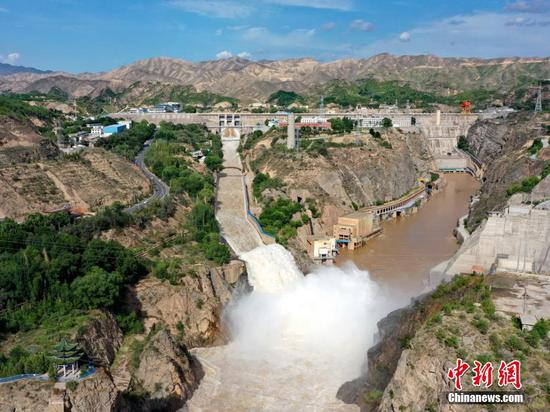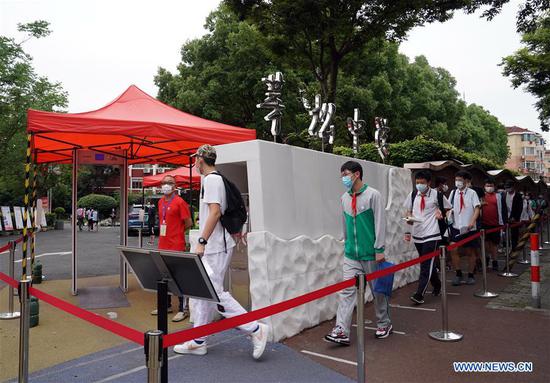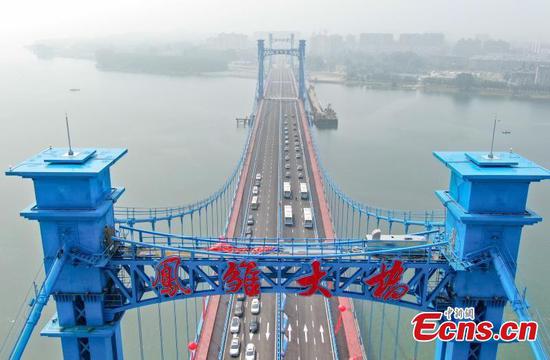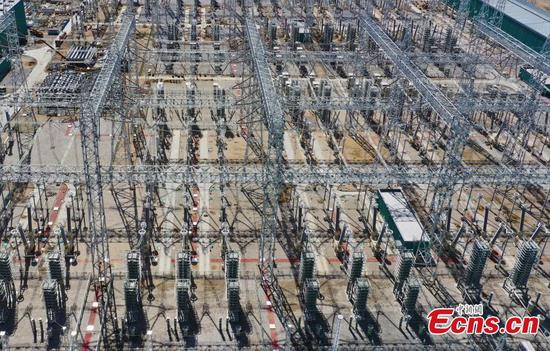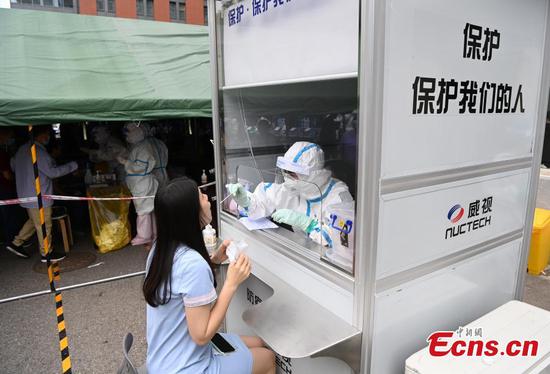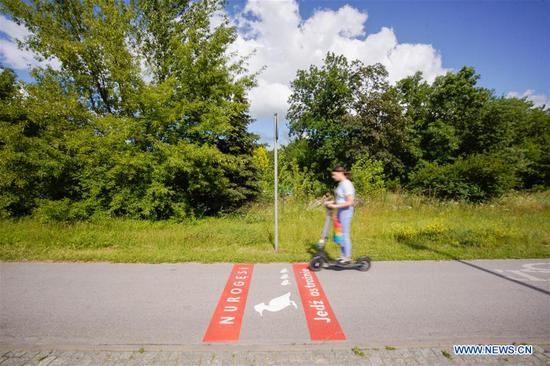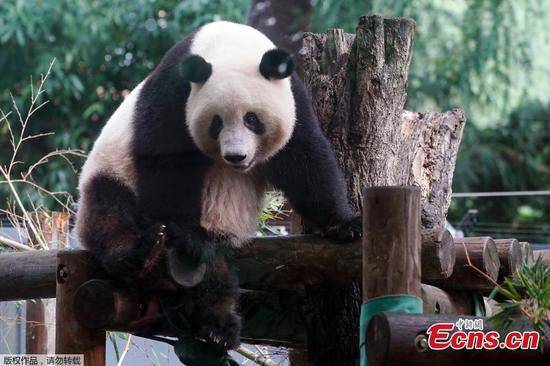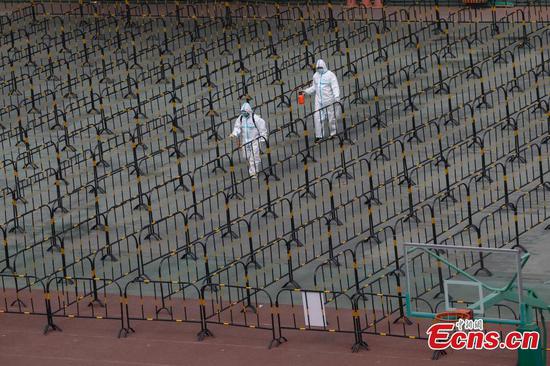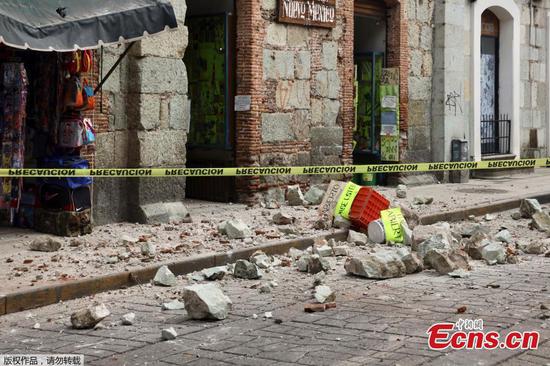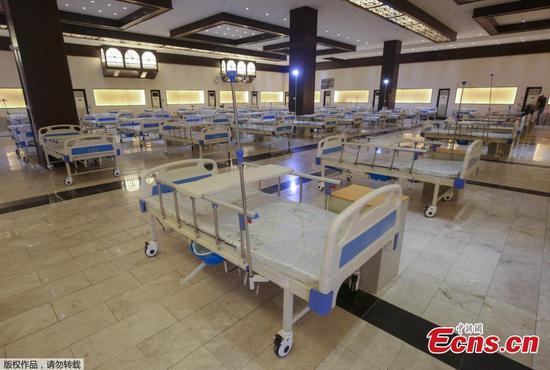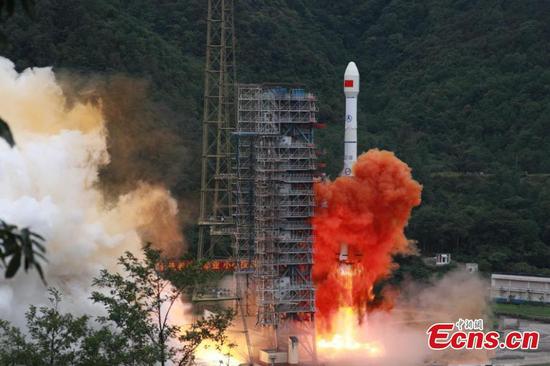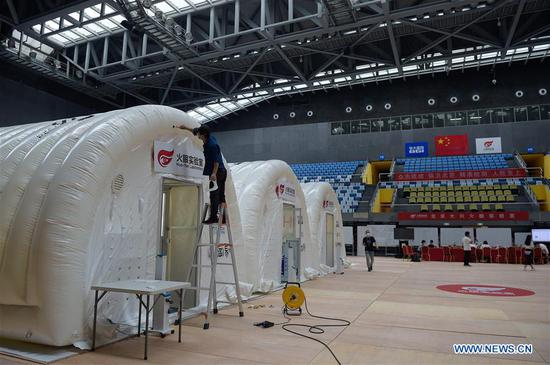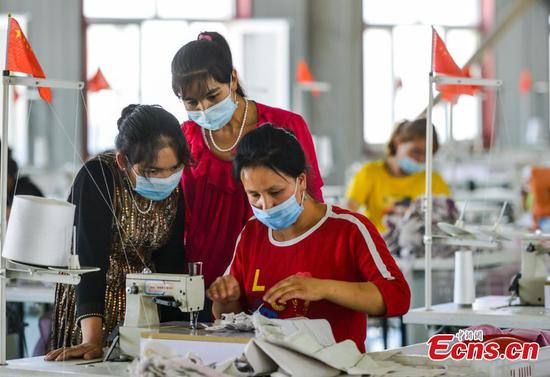Li: Stabilizing fundamentals in foreign trade, investment sector of paramount importance
Premier Li Keqiang pledged stronger financial support to businesses on Sunday and greater efforts to protect smaller companies and labor-intensive enterprises to shore up China's foreign trade and foreign investment amid the global economic downturn.
Speaking at a symposium on stabilizing foreign trade and investment in Beijing, Li said the government will guide financial institutions to bolster financing support through credit, credit insurance and secured loans to alleviate liquidity problems faced by businesses.
He spoke via video link with six business executives from the foreign trade sector, learned about their orders, employment, funding and industry and supply chains in recent months and listened closely to their opinions on the market and government policies going forward.
Stabilizing the fundamentals in the foreign trade and investment sector is of paramount importance to stable economic performance and the job market, he said.
With the COVID-19 pandemic still raging globally and the global economy facing a severe recession, the external environment for China's foreign trade will remain challenging and complicated, he said.
China's foreign trade volume dipped by 4.9 percent year-on-year to 11.54 trillion yuan ($1.63 trillion) in the first five months of this year, with exports down 4.7 percent and imports dropping 5.2 percent year-on-year, according to the General Administration of Customs.
Authorities should fully assess the difficulties going forward and stay adequately prepared, Li said.
The government is considering new measures to stabilize foreign trade and investment while working proactively to expand domestic demand, he said.
The premier underscored the need to help large foreign trading businesses solve their problems, a key measure to protect jobs. He said more work must be done to enable easier customs clearance and provide better services for businesses.
China will step up coordination and communication with relevant countries to ensure unimpeded international cargo transport and open more "fast lanes" that facilitate business exchanges between countries, he said.
In fostering new growth engines in foreign trade, Li called for steps to encourage the transformation of foreign trading firms and bolster the quality and added value of their exported products.
The growth of new business models in foreign trade, such as cross-border e-commerce, must be accelerated, with efforts made to encourage the development of overseas warehouses with input from multiple sectors, he said.
Li reaffirmed the government's commitment to rolling out more measures to expand opening-up and promoting international cooperation in multiple areas.
The country will make its central, western and northeastern regions more attractive to industrial transfers, he said.










